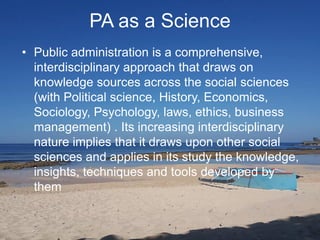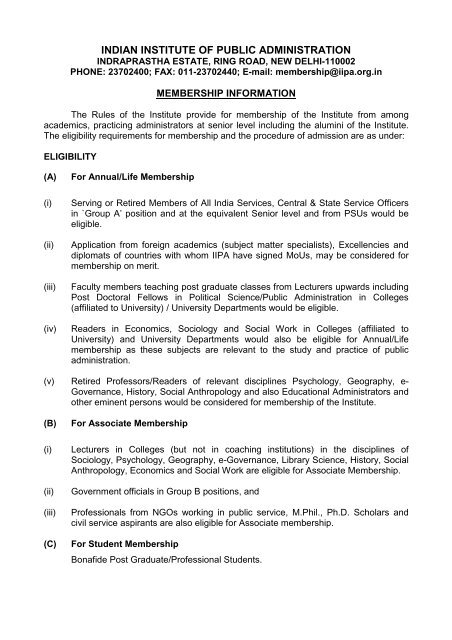The relationship between psychology and public administration is a complex and multifaceted one, as both fields deal with the behavior and motivations of individuals within a social and organizational context. Public administration is concerned with the effective and efficient management of public organizations and the development and implementation of policies and programs for the benefit of society. Psychology, on the other hand, is the scientific study of the mind and behavior, with a focus on understanding the psychological processes and factors that influence how individuals think, feel, and behave.
Despite their differences, psychology and public administration are closely interconnected and can inform and enrich each other in various ways. For example, psychological theories and research findings can be applied to the design and implementation of public policies and programs in order to better understand and address the needs and concerns of citizens. Public administrators can also use psychological insights to develop more effective communication strategies, improve organizational performance and decision-making, and promote a healthy and positive work culture.
One area where psychology and public administration intersect is in the study of leadership and management. Both fields recognize the importance of effective leadership in achieving organizational goals and improving public services. Public administrators can benefit from understanding the psychological factors that influence how leaders behave and how they are perceived by their subordinates and stakeholders. For example, research in psychology has shown that leaders who are perceived as fair, competent, and trustworthy are more likely to be effective and have a positive impact on organizational performance. Public administrators can use these findings to improve their own leadership skills and to identify and develop leaders within their organizations.
Another area where psychology and public administration intersect is in the study of policy implementation and evaluation. Public policies often have unintended consequences and may not achieve the desired outcomes if they are not implemented effectively. Psychology can help public administrators understand the psychological factors that influence how individuals respond to and comply with public policies and programs. For example, research in psychology has shown that people are more likely to comply with policies and programs if they perceive them as fair, reasonable, and consistent with their values and beliefs. Public administrators can use these findings to develop more effective implementation strategies and to evaluate the effectiveness of their policies and programs.
In conclusion, the relationship between psychology and public administration is a complex and multifaceted one, with both fields informing and enriching each other in various ways. Psychology can provide public administrators with valuable insights and tools to improve their leadership skills, policy implementation and evaluation, and organizational performance. By leveraging the knowledge and expertise of both fields, public administrators can better serve the needs and interests of citizens and contribute to the overall well-being of society.








